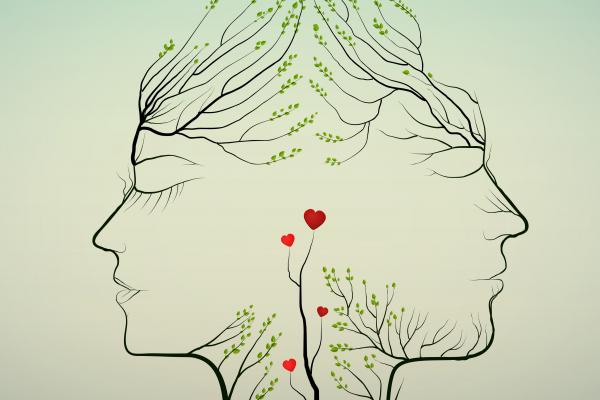Tracing God’s indomitable shalom throughout Scripture, The Very Good Gospel celebrates the blessed web of creation where the flourishing of one is the flourishing of all. Devoting nearly 20 pages to shalom between the genders, Lisa Sharon Harper — Sojourners' chief church engagement officer — considers her own experiences in Christian ministry where too often God’s gifts to women are shamed and marginalized. Harper challenges the theological distortions that rob men and women of that blessed partnership beaming throughout the pages of Scripture.
Shifting its focus from the personal to the theological, The Very Good Gospel casts vision for the meaning and purpose in our embodiment as gendered humanity created in God’s image. Pulsating in every heart is a quest for our truest identity and purpose — a core concern for Harper. While churches debate women’s leadership, Harper seeks God’s shalom in a world filled with suffering, especially of women. For the abuse of anyone is, for Harper, a direct assault on the image of God. It is an unraveling of the very good gospel intended for human flourishing. Harper turns to the biblical texts for clarity and rescue.
The Very Good Gospel finds comfort in the inescapable beauty of humanity created in God’s image. It alone is equipped and called to care for the world collaboratively, as God’s agents. For this reason, the only deficiency of Eden is Adam’s aloneness, a need God resolves by creating a strong rescue — woman. Readers anticipate the creation of Eve, but first Adam names the animals — a process that illustrates the enormous gulf between animals and those who bear God’s image. Adam’s aloneness and incapacity ends only with Eve. In meeting her, he bursts into song: “At last, this is bone of my bone, flesh of my flesh” (Genesis 2:24).
Eve shares not only Adam’s flesh but also his metaphysical being. She, too, is created in God’s image. She is the promised strong rescue implied by termezer (Genesis 2:18). Only together can they fulfill God’s call to be fruitful and to increase the flourishing and shalom of Eden. As the Book of Common Prayer suggests, God endowed humankind with “memory, reason and skill” — the ability to care for creation. Theirs was a holy, blessed union, not of dominance or exploitation but of harmony and one-ness of shared substance and purpose. Leaving all others and cleaving to each other (Genesis 2:24), their union of flesh and purpose was the glorious flourishing of shalom. Given free will, they could choose right from wrong even to their own demise. Oh, that they had chosen the good!
Through disobedience, their shared purpose deteriorates into a male rule that distorts and blurs woman’s true identity as man’s essential ally. Patriarchy unravels human flourishing, marring the glories of Eden. Yet, God promises a child will be born to woman. Mary’s Christ will crush evil, restoring shalom (Genesis 3:13-15), even as women’s agency negotiates the structures of patriarchy, whispering through the biblical stories but bursting uncontainable in Christ. He alone welcomed their strong rescue while challenging the domination of male over female. In Jesus, humanity is recreated in God’s image (Eph 4:24; Col 3:10), for the gift is not like the curse, Romans 5:15. Just as God breathed life into the human, formed of dust (Genesis 2:7), Jesus breathes on the male and female disciples imparting spiritual authority as God’s agents to forgive or retain sins (John 20:17-23). Likewise, the Holy Spirit fell men and women at Pentecost (Acts 2:5-21), empowering a diverse church for service not through dominance but via interdependence.
Using the body metaphor to illustrate this truth, Paul reminds Christians at Corinth that the eye needs the hands, just as the head needs the feet (1 Cor. 12:21). One gift requires the others because the gifts are humbly interdependent. Unlike the head of Rome who demanded sacrifice of its citizen and slaves, Christ’s headship was sacrifice. Created in God’s image and recreated in the image of Christ (2 Cor. 3:18) male and female share God’s empowering for a divine purpose — human flourishing. It is an essential interdependence of God’s holy agents.
While humanitarians and businesses recognize the advantages when women join male teams, we might observe — as Dr. Martin Luther King, Jr., did — that the church is often the taillights rather than the headlights of God’s shalom. Thankfully, Lisa Sharon Harper remembers that Calvary restores shalom. It is God’s Very Good Gospel where everything wrong is truly made right. Christians for Biblical Equality will be promoting this book, and I do recommend it to pastors and those devoted to human flourishing.
Got something to say about what you're reading? We value your feedback!

